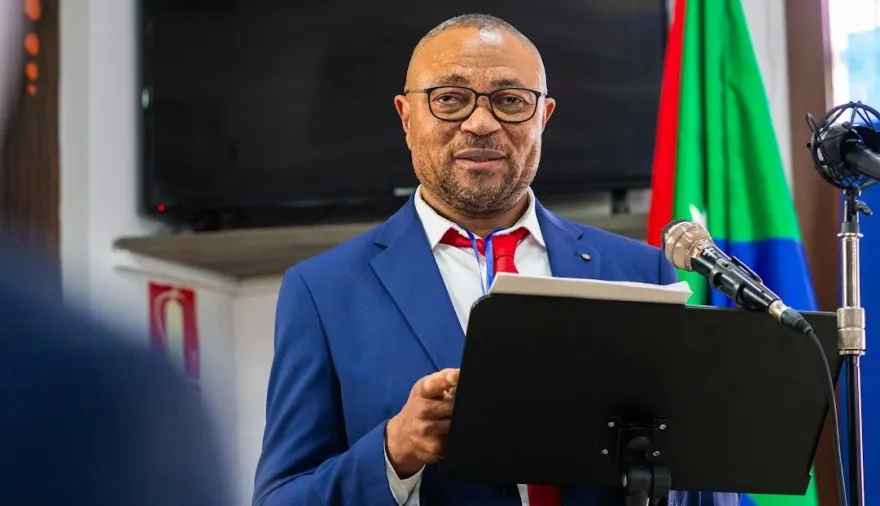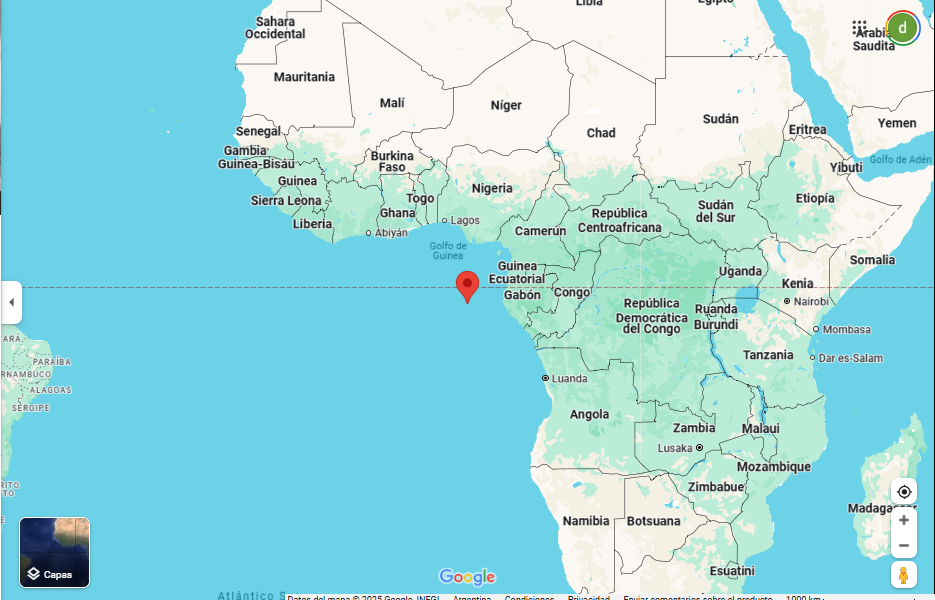In an unprecedented move that connects colonial histories and contemporary claims to sovereignty, the island of Annobón, a small territory under the control of Equatorial Guinea, has formally requested Argentina to support its fight for international recognition as an independent state .

During a visit to Buenos Aires, Annobonese Prime Minister-in-exile Orlando Cartagena Lagar clarified that this is not a request for annexation, as initially speculated, but rather a request for political and humanitarian support in the face of repression by the government of Teodoro Obiang Nguema.
Shared colonial legacy
Annobón, a mere 17 km² in area and with around 5,000 inhabitants, was administered within the Viceroyalty of the Río de la Plata during the Spanish colonial period, before being transferred to other European powers. Today, its inhabitants report systematic abuses: lack of drinking water, electricity, medical care, and severe restrictions on freedom of movement. "They are slowly killing us," Lagar declared in a meeting with Argentine deputies.

On July 8, 2022, the island unilaterally declared its independence, but no country or international organization has recognized it . Cartagena Lagar , elected by a local assembly as prime minister of a provisional government, lives in exile in Spain and maintains that Annobón "does not seek to change masters, but to be free."
The Argentine dilemma
The Argentine government has not officially commented, but the request has already sparked debate in Congress . Some legislators, such as Representative Ricardo Herrera , have expressed support for "making visible the human rights violations" suffered by the Annobon people. However, analysts warn that explicit support for Annobon's independence could have serious diplomatic consequences.
Equatorial Guinea, ruled by Obiang Nguema since 1979, is an influential player in Africa . Several countries on the continent have been historic allies of Argentina in its claim to the Malvinas, particularly in forums such as the UN and the African Union . A clash with Malabo (Equatorial Guinea's capital) could weaken that support at a time when London is seeking to consolidate its position in the South Atlantic.
Logistics base and humanitarian mission?
Some Argentine political and military sectors have considered establishing a strategic presence in Annobón, given its location on a key maritime route and its fishing and mineral resources. However, official sources have ruled out any action involving formal recognition of independence for now .
Meanwhile, the humanitarian situation on the island continues to deteriorate. International organizations have documented forced displacement, arbitrary detentions, and unfair trials . "We ask Argentina for its support, not for it to turn us into another colony ," Lagar insisted.
The aftermath of colonialism
The Annobón case reflects a global problem: territories that, after centuries of foreign rule, have become trapped in oppressive states. Their struggle is not only for autonomy, but for survival . And while a future partnership with Argentina is not ruled out, for now the demand is clear: recognition, not annexation.
Buenos Aires' official silence can be interpreted as caution, but also as a sign that, in geopolitics, even just causes must be weighed against larger interests . Argentina's decision will define not only the future of Annobón, but also the weight of its own diplomacy in Africa and around the world.






